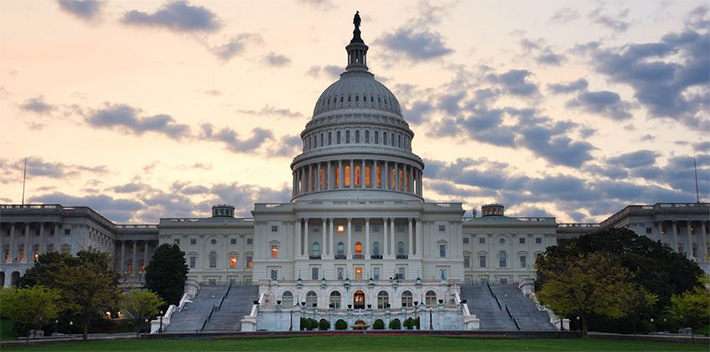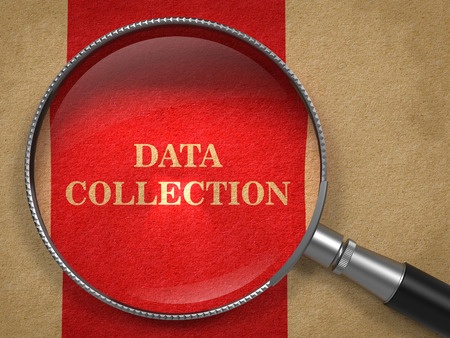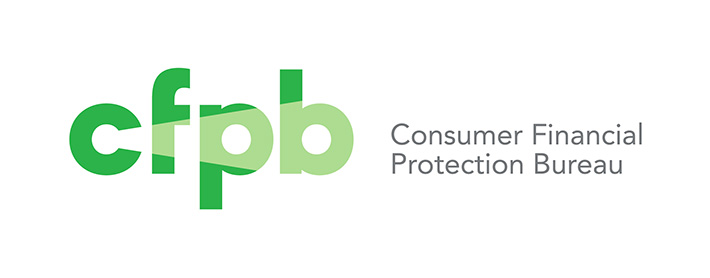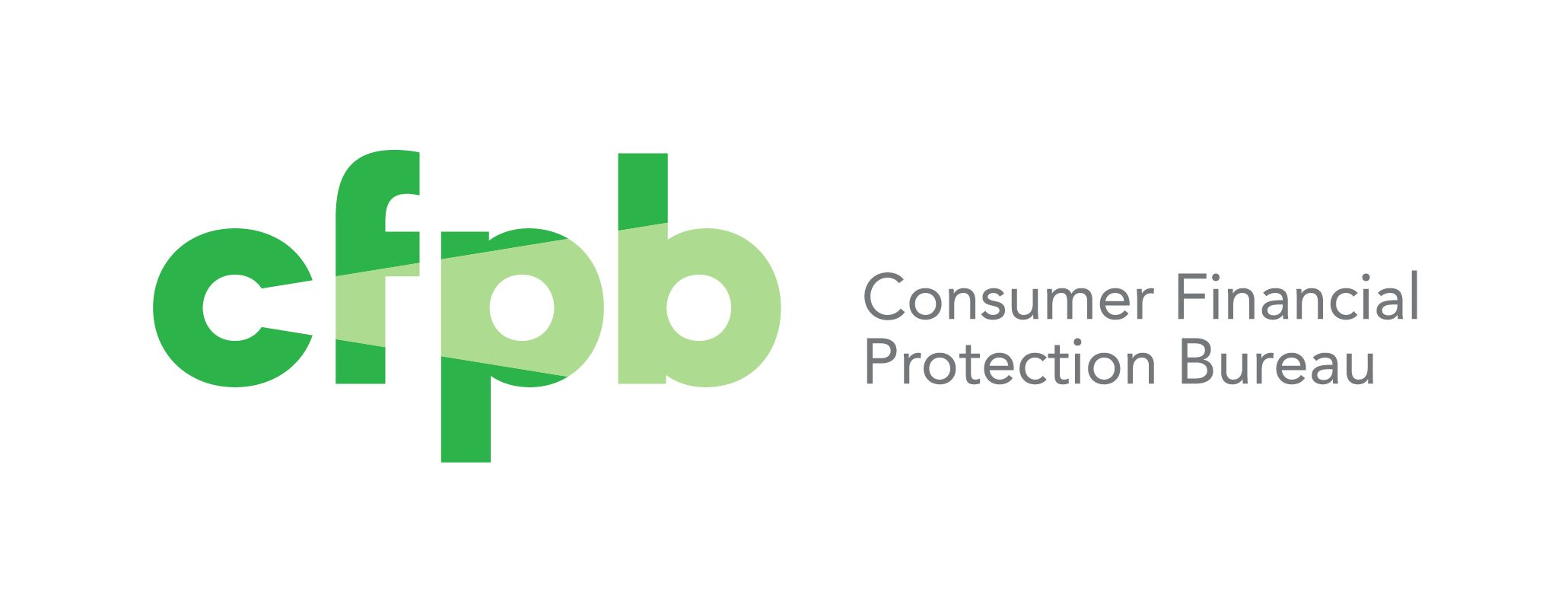Story Series: Section 1071
Trade Group Sues CFPB Over Small Business Loan Data Collection Rules
January 4, 2024 The RBFC has filed a lawsuit against the CFPB over its data collection rules that are scheduled to go into effect this year.
The RBFC has filed a lawsuit against the CFPB over its data collection rules that are scheduled to go into effect this year.
As readers may recall, the federal regulator created 888 pages of rules governing how small business lenders (including MCA companies) will be required to collect and submit data for federal analysis.
At first, it appeared that the CFPB had way overstepped its bounds when Congress, on a bi-partisan basis, passed a resolution to scrap the rules. President Biden, however, then took the unprecedented step of vetoing their resolution on his belief that the rules were necessary to “conduct oversight of abusive and predatory lenders.”
One week after the veto the RBFC filed its lawsuit.
Although the CFPB is required by law to collect small business loan data pursuant to Section 1071 of the Wall Street Reform and Consumer Protection Act, the plaintiff took umbrage with the CFPB’s allegedly deliberate misinterpretation of the words “credit” and “loan” as they’re written in that statute. That’s because the CFPB unilaterally decided those terms also apply to MCAs/Sales-Based-Financing agreements. The RBFC contests that the CFPB has the legal authority to include products outside the scope of the federal statute and asks the Court to declare the rules invalid as they apply to sales-based financing.
Wait, Is Section 1071 On The Verge Of Being Cancelled?
December 1, 2023 After the CFPB spent 13 years trying to figure out how to implement a wide-reaching poorly-worded law, the ensuing 888-page handbook full of rules for small business lenders to follow so the government can measure disparities in commercial loan underwriting processes, may have all been for naught. Congress wants the rules gone.
After the CFPB spent 13 years trying to figure out how to implement a wide-reaching poorly-worded law, the ensuing 888-page handbook full of rules for small business lenders to follow so the government can measure disparities in commercial loan underwriting processes, may have all been for naught. Congress wants the rules gone.
The rules in question were mandated by Section 1071 of the Wall Street Reform and Consumer Protection Act of 2010 (Dodd-Frank) at a time when the bill’s drafters assumed that all business financing products were loans and all loans came from banks. The consequence has been endless rounds of debates, RFIs, hearings, committees, consultations, explainer guides, and lawsuits. Most recently there was a court-ordered injunction put in place to delay implementation of these rules.
Today, however, the House followed the Senate in voting to strike down the relevant rules. Though it was close in both chambers of Congress, Democrats did join Republicans in reaching this outcome. Nevertheless, reports say that Biden is expected to veto their resolution.
Notably, the passed legislation disapproves the rules submitted by the CFPB, not the underlying section of the law that mandates they draft a set of rules. This is important because it’s not Section 1071 that they’ve voted to undo, but rather the final rules that the CFPB has issued as part of its obligation to Section 1071.
According to House republicans, “By overturning the final 1071 rule, Congress will force the CFPB to reengage small businesses and their lenders to create a rule that is better tailored to their concerns and less likely to reduce the availability of credit.”
This effectively means that Section 1071 itself is safe (unless a court rules it or the CFPB unconstitutional). If the President does not veto it the legislation would force the CFPB to go back to the drawing board on rules it took 13 years to come up with in the first place.
ELFA Wins Nationwide Relief from Section 1071 for Equipment Finance Industry
October 26, 2023 WASHINGTON, D.C., October 26, 2023 – In a major victory for members of the Equipment Leasing and Finance Association and the entire equipment finance industry, today the U.S. District Court for the Southern District of Texas issued a nationwide injunction delaying implementation of Section 1071 for all covered financial institutions. This action is in direct response to the efforts of ELFA and the other parties that intervened in the case in recent months. Functionally this means that the deadlines for compliance with Section 1071 are delayed by approximately 10 months for all ELFA member companies.
WASHINGTON, D.C., October 26, 2023 – In a major victory for members of the Equipment Leasing and Finance Association and the entire equipment finance industry, today the U.S. District Court for the Southern District of Texas issued a nationwide injunction delaying implementation of Section 1071 for all covered financial institutions. This action is in direct response to the efforts of ELFA and the other parties that intervened in the case in recent months. Functionally this means that the deadlines for compliance with Section 1071 are delayed by approximately 10 months for all ELFA member companies.
In response to the Court Order, ELFA President and CEO Ralph Petta said, “This is a big win for ELFA members and the equipment finance industry as a whole. We applaud the action taken by the court today, which underscores the value of our association’s ongoing efforts to ensure Section 1071 doesn’t make it more burdensome for our members and their customers in the $1 trillion equipment finance industry to do business together.”
Earlier this year the court had issued a partial injunction in response to litigation filed by Rio Bank, the Texas Bankers Association and the American Bankers Association. That initial injunction had, until that point, only covered those three entities. In August ELFA intervened in the lawsuit to ensure that the initial relief provided by the judge would apply equally to all ELFA members.
The action taken by the court today broadens the injunction to delay implementation of Section 1071 for all financial institutions covered by the rule. The delay will last until the Supreme Court issues a decision in a different, but related, case. The Supreme Court decision is expected in the spring/summer timeframe of 2024. This means that compliance will likely now be pushed out approximately 10 months from all the dates published in the original rule.
ELFA has been working for over a decade to improve Section 1071. The association has been proactively engaged in both the legislative and regulatory arenas to defend its members’ interests and reduce the measure’s onerous reporting regulations. Section 1071 is a part of the Dodd-Frank Act, which when implemented by the Consumer Financial Protection Bureau (CFPB) will require commercial finance companies to collect information about credit applicants and report it to the CFPB on an annual basis, along with extensive financial data associated with the application’s disposition, including extensive pricing information.
The “Order Granting Intervenors’ Motions for Preliminary Injunction” is available on the ELFA website at https://www.elfaonline.org/1071. ELFA will be sharing more information with its members in the coming days and weeks about the implications of this ruling.
About ELFA
The Equipment Leasing and Finance Association (ELFA) is the trade association that represents companies in the $1 trillion equipment finance sector, which includes financial services companies and manufacturers engaged in financing capital goods. ELFA members are the driving force behind the growth in the commercial equipment finance market and contribute to capital formation in the U.S. and abroad. Its 580 members include independent and captive leasing and finance companies, banks, financial services corporations, broker/packagers and investment banks, as well as manufacturers and service providers. ELFA has been equipping business for success for more than 60 years. For more information, please visit www.elfaonline.org.
Media/Press Contact: Amy Vogt, Vice President, Communications and Marketing, ELFA, 202-238-3438 or avogt@elfaonline.org
Federal Regulator Enacts New 888-Page Law Covering Small Business Finance
March 30, 2023 This is NOT an April Fool’s joke. On Thursday, the CFPB released the final rules that govern how small business finance companies will have to collect and report data to the federal government. Such rules had been anticipated since the Dodd-Frank Act, passed in 2010, mandated that they be put in place. Thirteen long years later, the only part that may come as unexpected is the sheer magnitude of the language, 888 pages of fine print.
This is NOT an April Fool’s joke. On Thursday, the CFPB released the final rules that govern how small business finance companies will have to collect and report data to the federal government. Such rules had been anticipated since the Dodd-Frank Act, passed in 2010, mandated that they be put in place. Thirteen long years later, the only part that may come as unexpected is the sheer magnitude of the language, 888 pages of fine print.
Transactions within the scope of the rule include loans, lines of credit, credit cards, merchant cash advances, and credit products used for agricultural purposes.
According to the CFPB’s executive summary, compliance appears to start next year.
- A financial institution must begin collecting data and otherwise complying with the final rule on October 1, 2024 if it originated at least 2,500 covered originations in both 2022 and 2023.
- A financial institution must begin collecting data and otherwise complying with the final rule on April 1, 2025 if it: Originated at least 500 covered originations in both 2022 and 2023; Did not originate 2,500 or more covered originations in both 2022 and 2023; and Originated at least 100 covered originations in 2024.
- A financial institution must begin collecting data and otherwise complying with the final rule on January 1, 2026 if it originated at least 100 covered originations in both 2024 and 2025.
Call your lawyer.
CFPB Initially Proposed to Exclude MCAs, Factoring, and Equipment Leasing From Section 1071
December 17, 2020 After ten years of debate over when and how to roll out the CFPB’s mandate to collect data from small business lenders, the Bureau has initially proposed to exclude merchant cash advance providers, factors, and equipment leasing companies from the requirement, according to a recently published report.
After ten years of debate over when and how to roll out the CFPB’s mandate to collect data from small business lenders, the Bureau has initially proposed to exclude merchant cash advance providers, factors, and equipment leasing companies from the requirement, according to a recently published report.
The decision is not final. A panel of Small Entity Representatives (SERS) that consulted with the CFPB on the proposed rollout recommended that the “Bureau continue to explore the extent to which covering MCAs or other products, such as factoring, would further the statutory purposes of Section 1071, along with the benefits and costs of covering such products.”
The SERS included individuals from:
- AP Equipment Financing
- Artisans’ Bank
- Bippus State Bank
- CDC Small Business Finance
- City First Bank
- Floorplan Xpress LLC
- Fundation Group LLC
- Funding Circle
- Greenbox Capital
- Hope Credit Union
- InRoads Credit Union
- Kore Capital Corporation
- Lakota Funds
- MariSol Federal Credit Union
- Opportunity Fund
- Reading Co-Operative bank
- River City Federal Credit Union
- Security First Bank of North Dakota
- UT Federal Credit Union
- Virginia Community Capital
The panel discussed many issues including how elements of Section 1071 could inadvertently embarrass or deter borrowers from applying for business loans. That would run counter to the spirit of the law which aims to measure if there are disparities in the small business loan market for both women-owned and minority-owned businesses.
One potential snag that could complicate this endeavor is that the concept of gender has evolved since Dodd-Frank was passed in 2010. “One SER stated that the Bureau should consider revisiting the use of male and female as categories for sex because gender is not binary,” the CFPB report says.
But in any case, there was broad support for the applicants to self-report their own sex, race, and ethnicity, rather than to force loan underwriters to try and make those determinations on their own. The ironic twist, however, according to one SER, is that when applicants are asked to self-report this information on a business loan application, a high percentage refuse to answer the questions at all.
The CFPB will eventually roll the law out in some final fashion regardless. The full report can be viewed here.
Greenbox Capital on Official Panel to Aid Section 1071’s Rollout
October 21, 2020 This week, Greenbox Capital, the Miami-based alternative finance company known for its MCA and SMB financing, announced they are serving as a Small Entity Representative (SER) to the Consumer Financial Protection Bureau (CFPB) as the organization proceeds with the rollout of Section 1071 of the Dodd-Frank Act.
This week, Greenbox Capital, the Miami-based alternative finance company known for its MCA and SMB financing, announced they are serving as a Small Entity Representative (SER) to the Consumer Financial Protection Bureau (CFPB) as the organization proceeds with the rollout of Section 1071 of the Dodd-Frank Act.
“I am representing, and Greenbox Capital is essentially representing, the industry,” CEO Jordan Fein said. “There are some banks, there’s Funding Circle, but other than that, it’s Greenbox Capital serving in the industry.”
Fein, who founded Greenbox in 2012 and has since facilitated MCAs and business loans across America, Puerto Rico, and Canada, wrote in a press release that it was an honor to be selected to provide feedback on Section 1071.
“Over 2 million businesses across the U.S. are either women or minority-owned,” Fein wrote. “It is vital they can secure funding as easily as non-minority-owned businesses.”

Congress passed the Dodd-Frank Act in 2010 in response to the Great Recession. To further protect consumers, the CFPB was born. Section 1071, an amendment to the 1974 Equal Credit Opportunity Act, mandates financial institutions report demographic information to the CFPB. But much was left undefined about how to go about doing that and who would technically be subject to it.
Ultimately, the intent behind the law was to measure potential disparities among factors like the race and gender of applicants. Ten years later, the rollout is finally moving along.
As part of this, the CFPB created a board of firms representing the affected industry, on which Greenbox sits, to ensure the law works with the industry, not against it. The first panel was on October 15, in compliance with the 1996 Small Business Regulatory Enforcement Fairness Act (SBREFA.)
“They’re going through the SBREFA process, which is a structured process where they have a panel of industry representatives, and they share what they’re planning to do,” Fein said. “They run it by companies like us and we give our opinion and talk about how we think companies will be impacted.”
According to an invitation letter the firms received, they will have until November 9 to respond.
Fein said Greenbox would ensure any suggestions it made would positively impact the industry. Especially during a pandemic, Fein said it is essential to create regulation with firms in mind.
Section 1071 is Back and The CFPB Wants to Know How Much It Will Cost You to Comply
August 25, 2020 At some point in this century, small business finance companies will be expected to comply with Section 1071 of the Wall Street Reform and Consumer Protection Act that was passed in 2010.
At some point in this century, small business finance companies will be expected to comply with Section 1071 of the Wall Street Reform and Consumer Protection Act that was passed in 2010.
In the wake of the ’08-’09 financial crisis (remember that?!), lawmakers passed the above act that has become colloquially known as Dodd-Frank. Section 1071 gave the Consumer Financial Protection Bureau the authority and the mandate to collect data from small business lenders (and similar companies).
The costs, risks, and challenges with rolling out this law have been discussed on deBanked for 5 years, yet little progress has been made to finally implement it. But it’s starting to move along and the CFPB would now like to know how expensive it will be for businesses to comply.
If you are engaged in small business finance, you should seriously consider submitting a response to their survey. The CFPB is specifically cataloging responses from merchant cash advance companies, fintech lenders, and equipment financiers.
Dodd-Frank’s Small Business Lending Data Collection Rule Could Still Take Years to Implement
January 12, 2020 Small business lenders: Are you ready to regularly submit loan application data to the Consumer Financial Protection Bureau? No? Good, because almost ten years after Dodd-Frank passed, the provision that requires the CFPB to collect small business lending data still hasn’t been implemented.
Small business lenders: Are you ready to regularly submit loan application data to the Consumer Financial Protection Bureau? No? Good, because almost ten years after Dodd-Frank passed, the provision that requires the CFPB to collect small business lending data still hasn’t been implemented.
And apparently we’re still years away.
Section 1071, as it’s known, modified the Equal Credit Opportunity Act and defined a small business lender as any company that engages in any financial activity. So if you’re wondering if this thing even applies to whatever you do in your corner of small business finance, it probably does.
The rule has taken so long to implement that consumer advocacy groups have actually sued the CFPB over the delay. The CFPB took note followed by initiative and hosted a symposium late last year to discuss how it might go forward. The next steps from here are to convene a panel of small business lenders, have that panel issue a report, propose what the rules on collection will be, collect feedback on the proposal, formulate a final rule, issue a rule, and then set a time for when it will go into effect. That process could mean that the earliest that data collection takes place is in 2023, possibly even longer as the entire financial services industry may need time to develop the infrastructure and human resources to comply.
Beyond that, advocates and critics of Section 1071 do not even entirely agree on what purpose data collection will even serve. Some believe the intent is merely for the government to have access to data it otherwise might not have while others believe that the CFPB could use statistics it deems discriminatory to bring enforcement actions against financial institutions. Sounds like we could use a few more years to get on the same page…
A recording of the 2019 Symposium is below:





























